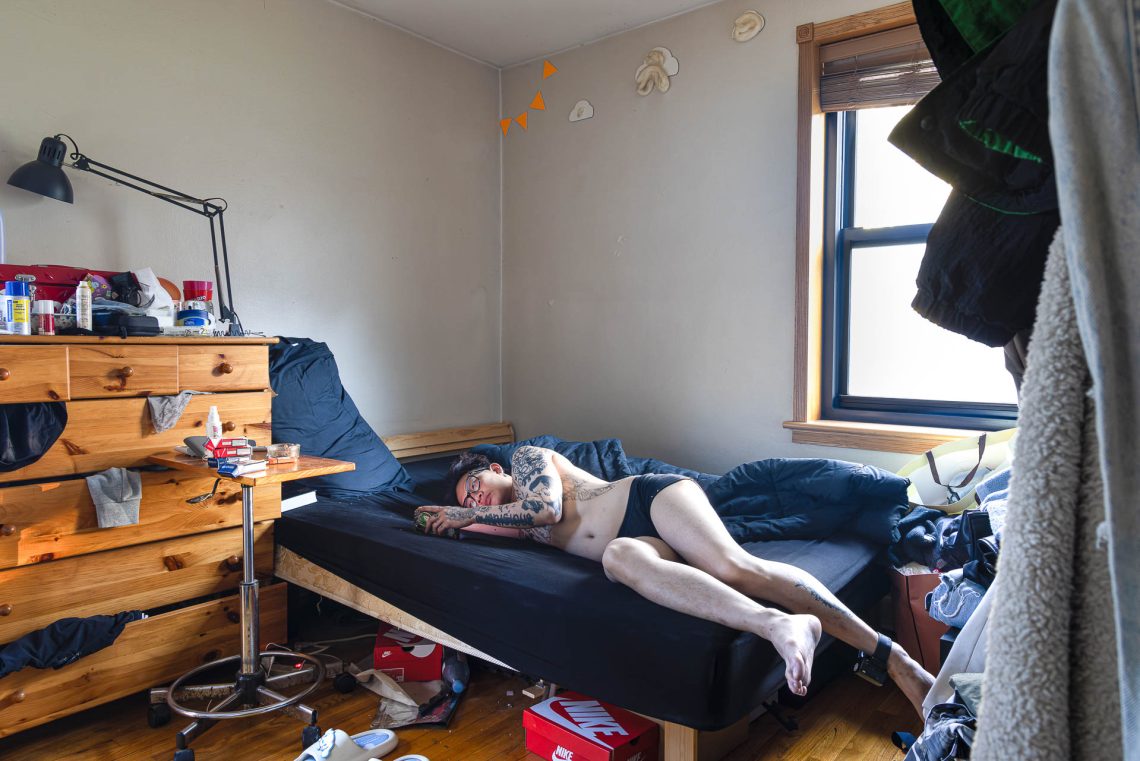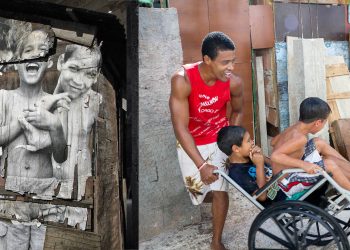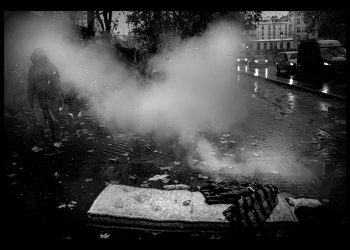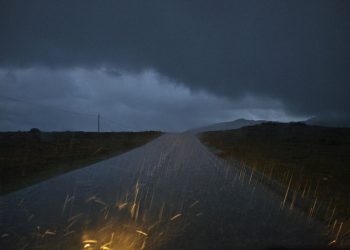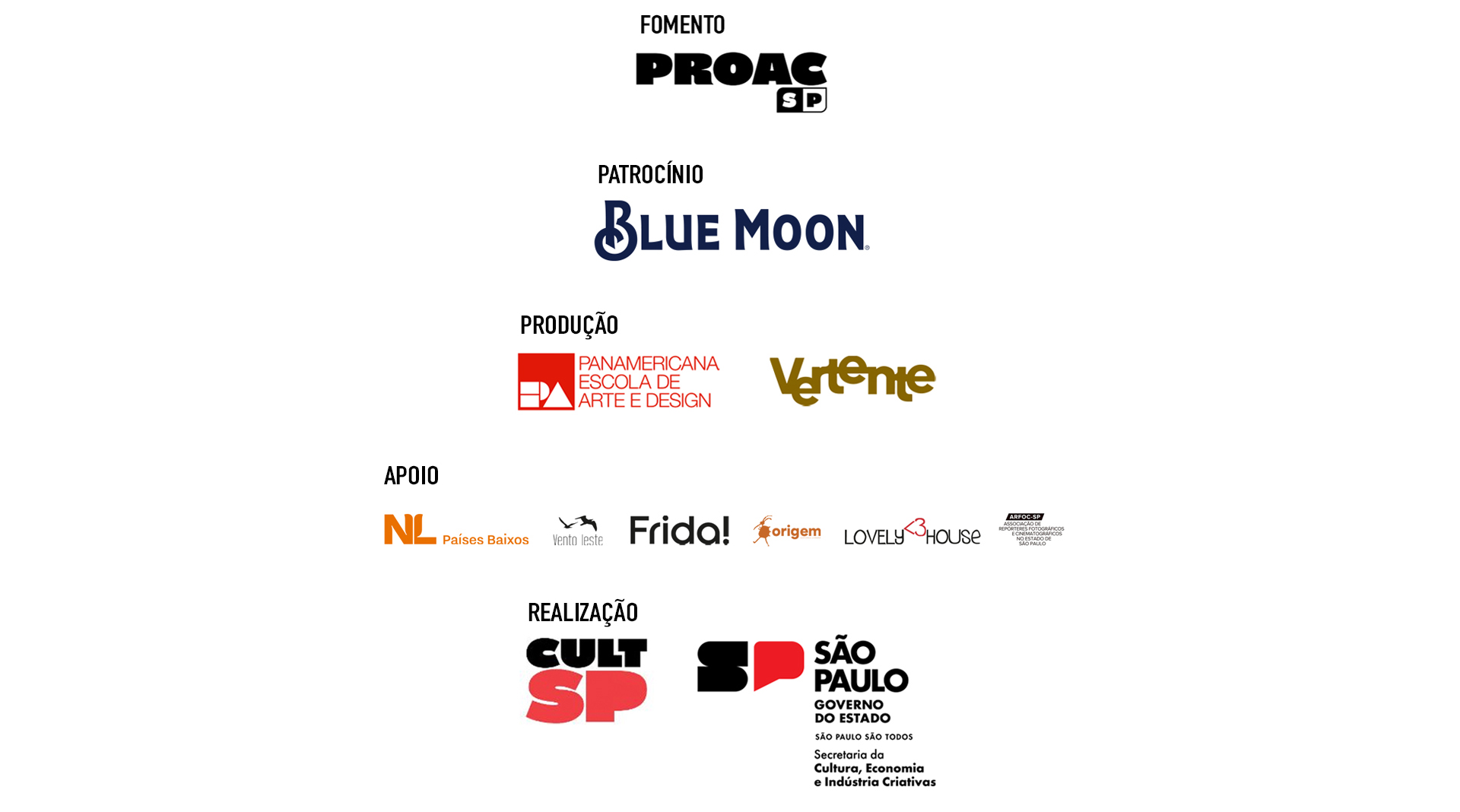Win or Lose is a biographical project depicting the story of a 25-year-old Chinese barber who immigrated to New York City by himself at the age of 15.
At the age of 15, Win embarked on a life-altering journey from Guangdong, China, to the United States, as his family sold their house to fund their American Dream. During that period, a number of Chinese persons held the belief that immigrating to the United States might result in substantial income, enabling them to surpass social barriers and attain economic independence. Despite residing in the bustling city of New York, Win’s world is predominantly confined to the vibrant streets of Chinatown in Flushing, Queens. His limited grasp of English, coupled with his routine existence that stretches from his Flushing home to the barbershop, an hour subway ride away, renders Manhattan, just across the river, a distant and enigmatic world—a place close in proximity yet emotionally distant.
In the summer of 2021, he unwittingly became involved in money-laundering operations, trapped by an old friend of his who used his bank account under the pretext of a currency exchange scheme. Now, while he awaits trial, he is required to wear electronic ankle bracelet, which limits him to twelve hours of freedom every day from 8 a.m. to 8 p.m.
Overall, the project is comprised of photographs of his limited activities in various locations: the church he belongs to, the Flushing Chinatown district, his back-and-forth bus and metro commutes, and the barbershop where he works, as these sites represent 99% of Win’s everyday existence when he goes out. The profound sense of isolation and tedium that an individual of Asian descent encounters while residing in America, devoid of familial and social connections, is a challenge for others to truly comprehend, particularly if they have not personally undergone a similar experience.
Consequently, I resolved to chronicle his life through my writing and photography. I am not attempting to critique American culture for its discriminatory and unjust treatment of Asians, nor the negligence and injustice exhibited by the American legal system against Asians. I aim to create an impartial yet empathetic documentary of Win’s trials and tribulations in the United States.
His life story encapsulates a variation of the quintessential first-generation immigrant experience for many families, a journey that spans from China to the United States, mirroring the path of many new arrivals who settle in Flushing. His life hovers between the poker games at home and the razor at the barbershop, seemingly devoid of hope, and also without a visual trace of disappointment, perhaps because he has nothing more to lose. Yet, in his decade-long ordeal, he has gained and lost, so eventually, is it a win or lose?

Photographer Yizhen: “Because of his ethnicity, Win’s public defender showed little interest in thoroughly explaining his case to him, or providing a robust defense. Instead, the defender pressured Win to plead guilty, viewing this as the quickest route to close the case and receive his payment.”

Win:
“My name is Win, and no doubt, I love gambling. But it’s not the betting that hooks me. I have also used it as an excuse to spend time with my friends in my home, the only place I can stay after work.”

Win:
“Apart from staying in my small room, I have nowhere else to go after 8 PM.”
Photographer Yizhen:
“Given his limited daily personal freedom of only 12 hours per day, it is undeniable that Win spends the majority of his time in his small apartment. Therefore, I decided to begin the story in this particular location. This room may lack richness and comfort, and its positioned on the lower level of the second floor exposes him to the constant noise of the garage nearby. However, Win told me that he had found peace in this small bedroom for six years. Although he may have been limited in his options, he has been ultimately satisfied with this particular pick. It has served as his only refuge from this huge and busy city, New York.”

Win:
“I love the quiet of the night when it feels like the room is just filled with three sounds: the clock ticking, the mouse clicking, and my heart beating. And this is my only personal moment throughout the entire day.”

Win:
“Sometimes I really wish I could climb into the washing machine, wash myself clean, and come out as a new me.”
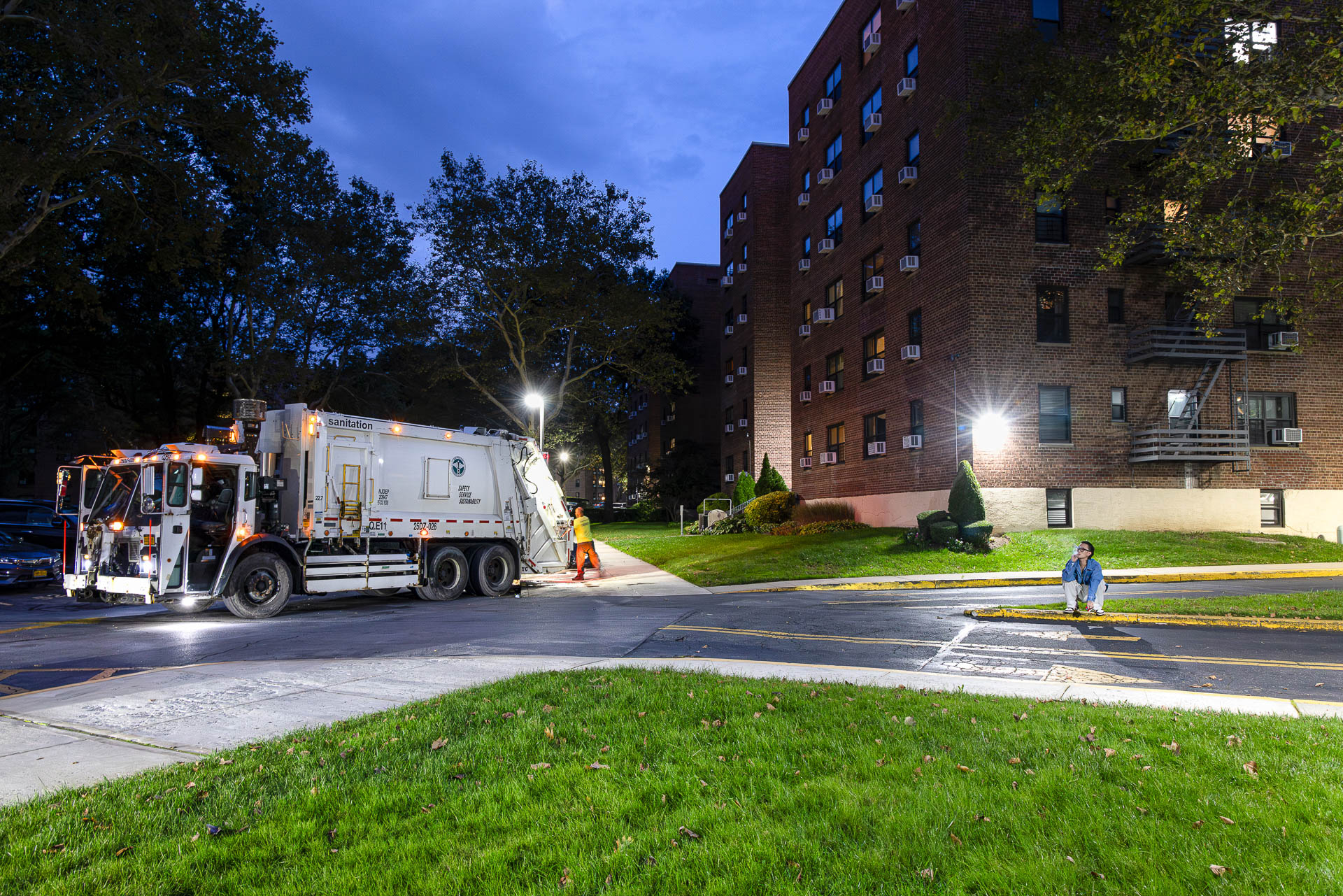
Win:
“Even this garbage truck–which hauls trash every day–has more freedom than I do. While I am stuck with nowhere to go, it can travel anywhere. I am probably worse than a machine.”

Win:
“I take Q88 to Q17 bus, and then the 7 train to get to work everyday, about more than an hour.
But it’s all good:
at least it gives me a chance to see what’s outside.”

Win:
“the barbershop is another kind of prison,
not because I’m trapped,
but because there’s nowhere else I can go…
Yet, this is a prison filled with joy,
where there’s people to talk to and money to be made.”

Win:
“You know why I love getting tattoos? Because it hurts—like, really hurts – but it also feels really so good. And I have each tattoo to remind me of my past days.”

Win:
“The place called “St.-Bliss St” is where I take the subway every day back home. But it feels like no happiness to me at all.”

Win:
“To be honest, at first, it wasn’t because I believed in Jesus.
But because I truly wanted to stay here [in the U.S.].
Over time, I got used to Christianity, and good thing, ’cause it also gave me a safe haven.”
Photographer Yizhen:
“A decade ago, upon his arrival in America, Win realized that he lacked any familial or social connections in this foreign land. As a result of experiencing a sense of being alone and without assistance in the United States, he sought solace, comfort, and acceptance in Christianity. Additionally, as a Chinese national who arrived in America, it was relatively easy to secure a green card through religious immigration for someone seeking political asylum.”

Win:
“You know this spot has probably the cheapest lunch in all of New York City. Eight bucks for three dishes and a soup. I love it because it keeps me full.”

Win:
“Those 24/7 massage places—they’re all about the extra services. You know, I once believed America was the best, but now my green card has been revoked, and I’m shackled with an electronic monitor. Does being the best even matter to me anymore?”



